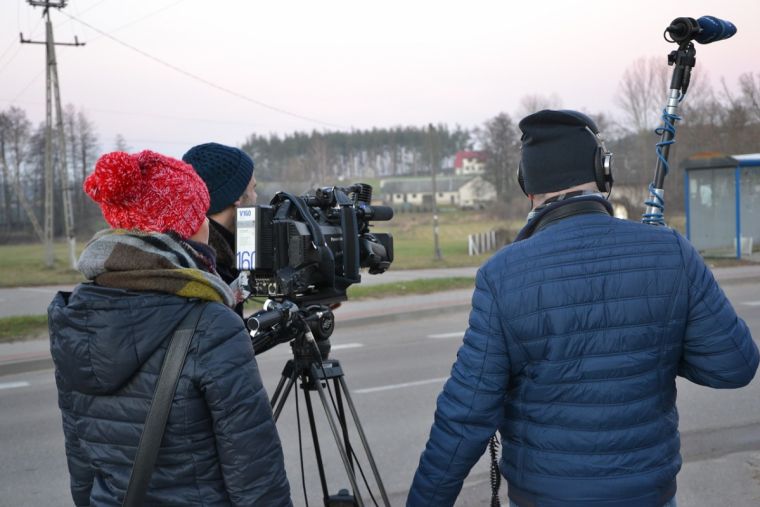Religious broadcasting: How it could change the way we see the world

What religious broadcasting can do for the UK – and what it can't
Why we need good religious broadcasting in the UK
The BBC has been criticised for not being Christian enough. These stories are hardy perennials, springing up with some regularity ever since the days of Mary Whitehouse and the National Viewers and Listeners' Association. Now, the world has changed and we live in a moral and religious context completely different from the 1960s, or what it was when the BBC was founded in 1931. Some of the criticisms made then – and now – seem, to be honest, a little quaint.
But there are serious questions to be asked about religious broadcasting. Some people think it's too sceptical, more concerned with tearing believers down than anything else. Others object to how believers are presented across the board; they're always fanatics, obscurantists or just plain odd, whereas in real life they're perfectly normal. And there's always the suspicion among some Christians, however little evidence for it there is, that other religions are treated differently – and better – than our own.
These concerns aren't just the green-ink complaints of people who just want everything the way it was 50 years ago, though they can sometimes sound like it. Religion – including Christianity – has an image problem in the UK, and it's not, or not only, the fault of people of faith. The broadcast media all too often sees religion as something alien and strange, whereas in fact for the vast majority of the world's population it's entirely normal. And in the UK, in spite of lower rates of churchgoing among the native British population, it still has deep roots and a wide reach.
But there's still confusion about what religious broadcasting should actually do and be. Should it be mainly or broadly Christian? Should it speak to and for people who are already people of faith, in their own religious language and in their own terms? Should it start from faith, or should it take liberal scepticism as its default position? And what counts as religious broadcasting anyway?
The answer given by the BBC is clear enough. In its Editorial Guidelines it says that "religious beliefs are central to many people's lives and arouse strong views and emotions. We should take care to avoid unjustified offence." It says: "We aim to achieve this by ensuring our output is not used to denigrate the religious beliefs of others, while upholding the right to freedom of expression." It also notes the requirement of the Ofcom Broadcasting Code not to stir up religious hatred and – importantly – that religious output must "not seek to promote religious views or beliefs by stealth".
So religion should be respected, but anyone looking to the BBC to do the Church's work of evangelism for it will be disappointed; that's not what it's for.
What, then, would an effective, creative BBC approach to religious broadcasting look like?
First, a commitment to increase the resources available to it. The BBC contains a high proportion of liberal, secular humanists for whom religion is alien territory on which they feel profoundly uncomfortable. It's crucial that there is, at the heart of the operation, someone who can talk about faith without sounding as though it's a half-learned foreign language. That means a religion editor who can take a broad view of the corporation's output, just as there is an arts and economics editor.
Second, a genuine commitment to inclusivity – for Christians as well as people of other faiths. If people feel they aren't being represented, or that their treasured beliefs are being treated with disrespect, they will resent it. So conservative voices must be heard with as much respect as liberal ones, and not treated as quaint survivors of outmoded belief systems. Furthermore, religious programmes have to be made in which people of different faiths can genuinely recognise themselves and feel they're heard and valued. Broadcast readings from the Qur'an might give some Christians apoplexy, but that sort of gesture would do wonders for community cohesion.
Third, there ought to be a real attempt to get under the surface of religious activity to the spiritual lives and motivations of the people involved. In the judging criteria for the Sandford St Martin awards, which reward excellence in religious broadcasting, the judges look for programmes "reflecting, investigating or exploring a religious or spiritual approach to life and its meaning, seeking to evoke a religious or spiritual response in the audience, bringing a religious or spiritual perspective to bear on political, social and economic arguments, or explaining a religious or spiritual point of view, or, an ethical dilemma". These are really praiseworthy aims that help to "normalise" how religion is treated in the public sphere.
Fourth, there has to be a commitment to an all-round increase in religious literacy. All too often, people of faith are treated as curious relics of a pre-scientific age. Their views on morality or ethics are seen as compromised automatically because they spring from faith. There's an assumption that liberal secularism is the norm, and anything else is just rather odd. And there is a colossal ignorance about minority faiths and how they are actually lived, which can only be overcome by encounters with the people who believe and practise them.
TV and radio provide extraordinary ways in which we can see the world through the eyes of other people. Religious broadcasting deals with our most intimate and fundamental concerns. Today, it's more important than ever that we should be able to see them reflected in the programmes we watch and hear.
Follow Mark Woods on Twitter: @RevMarkWoods











